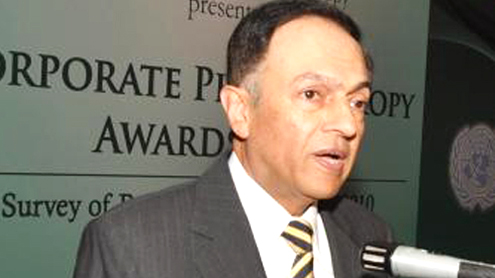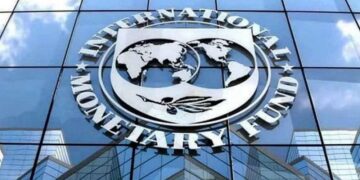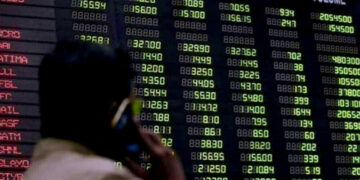 KARACHI: Pakistan holds enormous potential for economic growth, said State Bank of Pakistan (SBP) Governor Yaseen Anwar.
KARACHI: Pakistan holds enormous potential for economic growth, said State Bank of Pakistan (SBP) Governor Yaseen Anwar.
“I’m, personally, optimistic about the country’s future, and confident that our economic managers – who have steered the country through much choppier seas – will guide this resilient economy to the path of stability and prosperity,” the governor said. Delivering his key-note address on ‘The State of Pakistan’s Economy’ at a seminar organised by the Management Association of Pakistan (MAP) at a local hotel in Lahore on Thursday, he emphasised that our economy’s resilience may well be unparalleled as we have survived two major floods; one catastrophic earthquake; a war on one border; and a balance of payments crisis – all in the past decade without any bouts of hyperinflation, a run on bank deposits or a deep recession.
“This only goes to show the enormous potential for growth that the country holds,” he added. He said that while Pakistan’s economy is going through some testing times, the challenge in front of us can scarcely be classified as daunting. “Our twin deficits are, in my opinion, the most significant challenge at the moment. Even then, it is not the size that’s the problem; it’s the situation. And unlike the problems that engulf the economies of the West, we know precisely what needs to be done. In that regard, we are extremely fortunate,” the SBP governor added.
Anwar said, “We know what our problems are. Unlike many other countries, the solutions to our problems are straightforward. All they require is a good measure of willpower and the determination to see reforms through these interesting and challenging times.”
He said that despite the fiscal deficit, the country’s debt-to-gross domestic product (GDP) ratio has not increased substantially; in fact, it has declined in the last three years. “To put this in perspective, Pakistan’s debt-to-GDP ratio is half that of most European countries and one-third that of Japan, he said, adding that most of the country’s debt is denominated in rupees and the external debt is long-term in nature. Thus, I believe there is absolutely no chance that Pakistan will be facing a Greece-like debt crisis anytime in the near future,” Anwar added.
The SBP governor said that the resilience of the economy manifested itself in the pace of recovery that was witnessed after the flooding in Sindh in the early part of FY12. The improvement in food supplies has already dampened food inflation, which has been edging down continuously, he said, adding that this is especially good news for the lower strata of society, which spends roughly half of its income on food. “Headline inflation has followed suit and fell to less than 10 percent for the first time in two years,” he said. Anwar said that our textile and sugar industries are expected to do well this year and added that construction activity has also picked up with support from the rise in remittances; a growing population; and the initiation of public sector development projects. He pointed out that growth across the real sector has been constrained significantly by our energy problems. However, the government is very well informed about the energy situation and has been taking steps to alleviate the problem, he said, adding that such step was the debt swap that was recently conducted to free up liquidity for companies across the energy sector, increase power generation and reduce the level of circular debt in the energy sector. The SBP governor said that all stakeholders are conscious about the challenges that the economy faces at present, and discussions have been extremely frank and straightforward.
To help manage the deficit without too much of an impact on economic growth, the SBP has ramped up efforts to broaden and deepen financial markets – both primary and secondary, he said and added: ‘we have undertaken an initiative with the Securities and Exchange Commission of Pakistan to develop debt markets in Pakistan, and we believe that this will go a long way towards mitigating the negative effects on the economy of government borrowing from commercial banks.Anwar said that we are working towards the development of the corporate debt market that would lead to a secondary market, thereby creating ample liquidity to absorb the circular debt as a long-term remedy. The depth and breadth of the market comprising both institutional and individual investors, would also alleviate government borrowing from SBP and the commercial banks, he said, adding that naturally monetary policy would then become more effective in managing inflation. He said that Small and Medium Enterprise, agriculture and housing finance are engines of growth. Our banking structure currently is not performing its key role as a financial intermediary as none of these sectors have been adequately penetrated, he said and added that we are working to develop the corporate debt market to facilitate financing.
The SBP governor said that it is the financing of the current account deficit that will remain a challenge this year. ‘Net financial inflows have slowed down to only $1.9 billion in FY11 after peaking at $8.7 billion in FY07. To manage the situation, the bank has entered into currency swap agreements with Turkey and China in order to mitigate the pressure of any adverse development in the developed world on our external accounts and reserves,’ he said, adding that other such arrangements are in the pipeline with other countries that could relieve pressure on our external accounts. – Dailytimes












